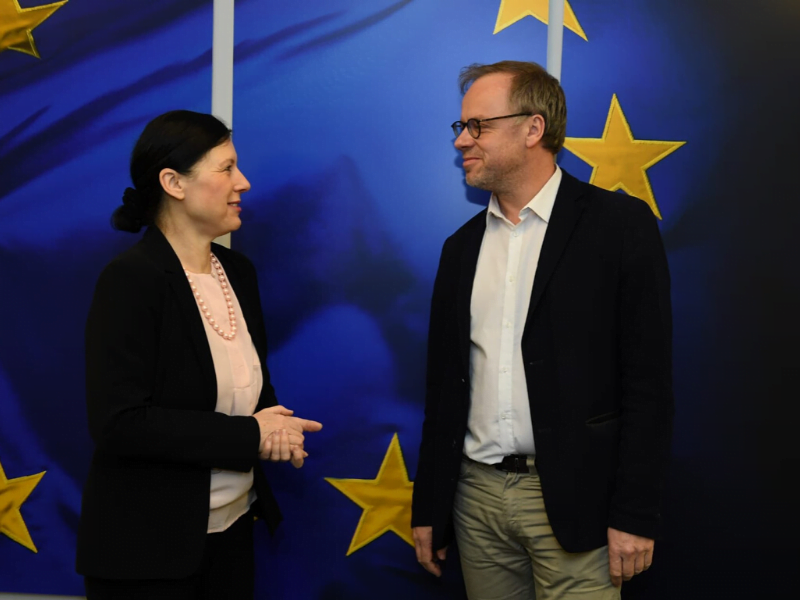Vera Jourová, Vice President of the European Commission for Values and Transparency, yesterday met with Secretary-General of Reporters Without Borders (RSF) Christophe Deloire and his team to discuss ways to improve media freedom.
In a tweet, Jourová said that the discussion focused on how they can work together to strengthen media freedom and media pluralism. “This will be a key dimension of our upcoming rule of law report and EU democracy action plan,” she said.
During Jourova’s hearing last year on her new portfolio, she had stressed the defence of the rule of law and media freedom, as well as protecting journalists who are under threat, among the commitments she would prioritise.
She had pointed out that the EU does not have the legislative tools to protect journalists who are under threat by their own government and expressed her concern that journalists were being attacked by politicians in EU Member States.
Potential measures mentioned by the vice president included anti-censorship legislation, as well as legal and financial aid for those facing rule of law violations.
In an interview with The Shift in 2018, the Vice President had insisted that there must be no impunity for those who ordered the killings of Caruana Galizia and Slovak journalist Jàn Kuciak and his fiancee Martina Kusnirova.
During her hearing, she reiterated her promise to the mother of murdered journalist Daphne Caruana Galizia to scrutinise the investigation into her death and the promise she made to her son to better protect journalists.
When the new European Commission was appointed, RSF had laid out the measures that require implementation. To defend media freedom, independence and pluralism in a continent in which abuses against journalists are on the rise, RSF called for a periodic review of press freedom in all EU Member countries on the basis of an independent report that could lead to country-by-country recommendations and to sanctions in the event of serious violations.
“When fundamental rights are violated, and especially in cases of violence against journalists, RSF proposes that NGOs and press freedom defenders should be able to urgently contact the European Commission and ask it to quickly intercede with the relevant national authorities,” RSF added.
To combat the fake news phenomenon, RSF said it believed that the priority should be placed on the reliability of online content rather than on repressive policies that are hard to implement and pose a threat to free speech. “In this regard, RSF urges the EU to recognise and support the Journalism Trust Initiative, which makes it easier to identify reliable news and information by means of a series of indicators measuring media transparency, editorial independence, the use of journalistic methods and respect for journalistic ethics.”
In order to better protect the online information and communication space from the threat of trolls, “those online mercenaries created by authoritarian regimes”, and from the accelerating spread of false information, RSF urged European countries to quickly join the ‘Information and Democracy initiative’ launched by the organisation in November 2018, already backed by some 20 democratic countries.
RSF had also proposed that the EU should give itself the means to impose targeted, individual sanctions on those responsible for serious violations of press freedom and journalists’ safety in third countries, in line with the ‘Magnitsky Act‘ in effect in the US, which allows the government to sanction foreign government officials implicated in human rights abuses anywhere in the world.












